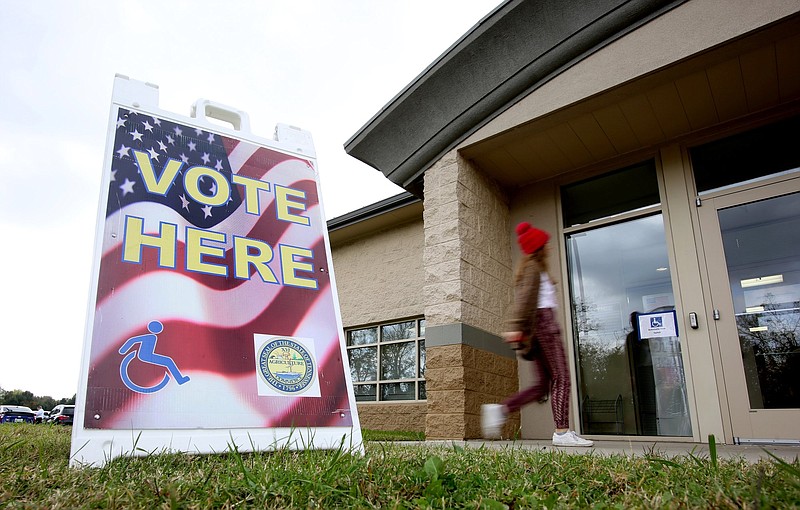Voters on any given day might hear President Donald Trump crowing about the economy and Democrats who want to replace him in November talking about how bad things are.
The president, in Davos, Switzerland, for the World Economic Forum, for instance, boasted about "America's extraordinary prosperity."
"America is thriving," Trump said Monday. "America is flourishing and yes, America is winning again like never before."
Meanwhile, Democratic contender Pete Buttigieg insisted in Iowa last week the economy isn't working for the middle class.
"The president wants us to think the economy is doing great," he said, "because the Dow Jones is up. But not a lot of that seems to be getting to our kitchen tables."
If people vote their personal financial situations, and many surveys say they do, it won't matter what the president or his opponents say. If their financial situation is sound, they'll re-elect an incumbent. If not, they'll look elsewhere.
Of course this doesn't work for every voter and not in 2020 when the person in office is Trump and when an impeachment trial sends individuals off to their various political corners.
But where finances are concerned, how things are in New York City may not be how they are in Kansas City or Rapid City or Carson City.
But in Hamilton County?
We're glad you asked.
In Hamilton County, median income rose from $50,273 in 2017 to $53,035 in 2018, a climb of nearly $3,000 and good for 15th in the state, according to recently released 2018 figures compiled by The Sycamore Institute based on 2014-2018 estimates from the American Community Survey.
At the same time, the county's poverty level fell from 14.5% to 13.7%. Its child poverty rate fell from 21.4% to 19.5%, and its poverty rate for seniors fell from 9% to 8.4%.
Sequatchie County, one of Hamilton County's neighbors, was tied for the fourth lowest poverty rate for seniors at 5.9%
We'd like to see all the poverty rates lower, especially when nearly one in five children is living in poverty, but the downward trend is the right direction.
However, of the state's four most urban counties, only Hamilton and Knox (Knoxville) counties have both above-average median incomes and less poverty than average. Davidson County (Nashville) has above-average median income and above-average poverty. Shelby County (Memphis) has average median income and above-average poverty.
We've always believed as educational attainment goes up, the poverty levels will go down. And for Hamilton County, that is true, according to 2018 figures.
County residents with at least a bachelor's degree climbed to 31.2%, up from 30.5% in 2017, good for sixth best in the state. And residents with at least an associate's degree ticked up from 38.7% to 39.7%, good for fifth in the state.
We don't see why that bottom number couldn't grow much higher since former Gov. Bill Haslam made getting an associate's degree virtually tuition-free in 2015 through his Tennessee Promise program, the first state to make such an offer.
The state is still a far cry from having 55% of its residents with a college degree, which Haslam hoped his "Drive to 55" program would make possible by 2025. But there's still time.
Democrats seeking the presidency maintain that fewer people are insured across the country than when Barack Obama was president. But in Hamilton County, that isn't the case.
The uninsured rate for all individuals here in 2017 was 9.5%, but in 2018 it fell to 9%. The child uninsured rate fell by the same amount, from 3.4% to 2.9%.
Unfortunately, nearby Grundy County topped all 95 counties with 17% of its residents uninsured, and the uninsured rate grew in Polk County by the second highest amount in the state from 9% to 11%.
For what it's worth, Hamilton is also the third least rural county in the state, behind Davidson and Shelby counties, with 10% of its expanse considered rural. And it is the fourth most dense county in the state with 621 people per square mile, trailing Davidson, Shelby and Knox counties.
The county's sound financial standing and the way its largest municipality, Chattanooga, is thriving likely are responsible for our good showing. Although the national economy in general is good, favoring Trump, Democrats are right that not everybody is enjoying the same success. Where individual households come down on the question certainly will be a key factor in deciding the 2020 election.
